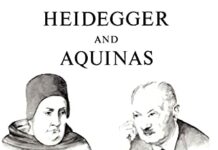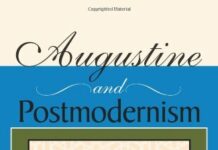
Ebook Info
- Published:
- Number of pages:
- Format: PDF
- File Size: 4.28 MB
- Authors: John D. Caputo
Description
This is a remarkable book: wide-ranging, resonant, and well-written; it is also reflective and personable, warm and engaging. ―Philosophy and Literature”With this book Caputo takes his place firmly as the foremost American, continental post-modernist . . . ” ―International Philosophical Quarterly”One cannot but be impressed by the scope of Radical Hermeneutics.” ―Man and World”Caputo’s study is stunning in its scope and scholarship.” ―Robert E. Lauder, St. John’s University, The ThomistFor John D. Caputo, hermeneutics means radical thinking without transcendental justification: attending to the ruptures and irregularities in existence before the metaphysics of presence has a chance to smooth them over. Radical Hermeneutics forges a closer collaboration between hermeneutics and deconstruction than has previously been attempted.
User’s Reviews
Reviews from Amazon users which were colected at the time this book was published on the website:
⭐John D. Caputo is a professor emeritus at Syracuse University and Villanova University. He has written many other books, such as
⭐,
⭐,
⭐,
⭐,
⭐, etc.He wrote in the Introduction to this 1987 book, “a hermeneutics of facticity, convinced that life is toil and trouble, would keep a watchful eye for the ruptures and the breaks and the irregularities in existence. This new hermeneutics would try not to make things look easy, to put the best face on existence, but rather to recapture and hardness of life before metaphysics showed us a fast way out the back door of the flux. That is the notion of hermeneutics with which I wish to begin: hermeneutics as an attempt to stick with the original difficulty of life, and not to betray it with metaphysics.” (Pg. 1)Later, he adds, “The ‘hermeneutics’ in [this book] is to be traced back to the project Heidegger announced in the twenties of a hermeneutics of facticity, which means the hermeneutics that writes from below… that wants to describe the irregularities and differences by which we are inhabited… This hermeneutics exposes us to ruptures and gaps, let us say, the textuality and difference, which inhabits everything we think, and do, and hope for. I want to show, however, that what I call here radical hermeneutics is not an exercise in nihilism, which wants to reduce human practices and institutions to rubble, but an attempt to face up to the bad news metaphysics has been keeping under cover… All of this is, I claim, hermeneutic work. For it describes the fix we are in, what in a more innocent day we might have called the ‘human condition.’ It provides an approach to the question of human existence that does not fall through the trap door of subjectivism and humanism. It opens us up to the question which we ‘are’…” (Pg. 6)He clarifies, “I do not mean… to oppose hermeneutics to science but only to Husserl’s misconception of science… recent philosophy of science confirms that hermeneutic conditionedness, the need to have a point of departure in guiding preconceptions, which Husserl readily concedes to the life of prescientific consciousness, is of the very essence of scientific life as well.” (Pg. 55)He outlines, “Deconstructive criticism is for me the gateway through which radical hermeneutics must pass. I am interested in breaking the spell of metaphysics where metaphysics means the attempt to arrest the play and to flood us with its reassurances. I am interested in letting the play play itself out. But I contend—and this goes to the heart of what I mean by radical hermeneutics—that after tracing out this deconstructive course, after allowing the disseminating drift its full play, we are in an odd way led BACK to ourselves… in deeper, less innocent way. Radical hermeneutics makes a pass at formulating what the French call … the human situation… And I call this ‘hermeneutics’ just because I think there is something liberating about all this, not dehumanizing.” (Pg. 97)He notes, “Now it is in this work of dis-illusionment, this emancipation from the metaphysics of comfort, that I locate an element of deep hermeneutic… which breaks the spell of illusion and awakens us to the abyss, to the flux in which we are caught up… For what we have understood the ‘self’ to be itself a temporary inscription on the flux, and we have learned that the confrontation is never frontal… but always mediated by signs and that such self-knowledge does not bring things to a rest but puts them all the more radically into play. But what I call ‘radical’ hermeneutics is precisely readiness for that, to make that confession, to let go even of that comfort, to live without illusion, without appeal… What I call radical hermeneutics involves just this READINESS for this anxiety and solicitation, the readiness to be shaken, the openness for ‘différance.” (Pg. 146) Later, he adds, “What I mean by hermeneutics in its radicalized mode has all along been this willingness to stay in play, to stay with the flux, without bailing out at the last moment. Radical hermeneutics, on my reading, is the philosophy of ‘kinesis’ [movement].” (Pg. 198)He states, “We are trying to restore the difficulty in life, not to make it impossible. Far from undermining the idea of ‘reason,’ this radical hermeneutic issues in a postmetaphysical rationality which is, I think, a are more reasonable reason than metaphysics has been proffering for some time now. Reason is not undone by the foundering of metaphysics but liberated, emancipated from metaphysical prejudices which tended to make of it something less than it is and which in fact turned it into something considerably more dangerous than wolves.” (Pg. 209) Later, he adds, “We do not destroy the reputation of reason with this talk of the play, we just tell a more reasonable story about it.” (Pg. 222) And, “What we call reason today is a central power tightly circled by bands of military, technical, and industrial authorities which together make up the administered society.” (Pg. 235)He summarizes, “If radical hermeneutics wants to expose us to the flux, then I want to show that this does not therefore leave us in the lurch. On the contrary… this in fact liberates action—from subjugation to metaphysical principles on the one hand and eschatological dreaming on the other hand. I want t show… that there is an ethics of dissemination… an ethics which arises, not in spite of but precisely because of the foundering of metaphysical and eschatological ethics. I want to defend an ethics which arises from cold hermeneutics, the hermeneutics without comfort, which issues from the salutary interplay of Heidegger and Derrida.” (Pg. 238-239)He says, “Radical hermeneutics is a lesson in humility; it comes away chastened from its struggle with the flux… The moral of radical hermeneutics for morals itself is to sharpen our sense of the contingency of our schemes, of the dissolubility of the metaphysical world.” (Pg. 258) Later, he adds, “In the end, radical hermeneutics does not lead us back to safe shores and terra firma; it leaves us twisting slowly in the wind. It leaves us … exposed to the groundlessness of the mystery. It is the play of the mystery which metaphysics is intent upon arresting, and it is in order to reopen that play, to get the police off its back, that we undertake radical thinking. This intractable mystery is the final difficulty that hermeneutics is bent on restoring. And it is upon this note, of openness to the mystery, that I want to ‘conclude’ this study and thus complete the illusion that we have here a ‘book,’ with a beginning, a middle, and an end.” (Pg. 267) He also notes, “Radical hermeneutics is a sustained attempt to write from below, without celestial, transcendental justification.” (Pg. 273)This book will be of interest to philosophers and theologians studying Deconstruction, as well as contemporary theology.
⭐One of the reviewers has stated the essence of Dr.Caputo’s “Radical hermeneutics”; therefore I feel no need to repeat what someone has done well. First, let me say how much I respect “Jack” Caputo. He is, I believe, making a solid contribution to theology in the “Postmodern” world.Second, the thrust of his impressive monograph is one with which I soundly resonate; the “Flux”, that troubling and disturbing “factum” is that (as Caputo says) which traditional metaphysics (especially of the more “conservative” side) has tried to soak up, dam, and remove once and for all from our consciousness. In its place we have erected our monuments to stability and security. In the process we have harnessed that which can’t really be harnessed at all. You can find the harnessed result on our bookshelves, and in the all-too-lamentable homiletics to which we are subject week after week. Much of ‘popular’ Christianity requires a bucket beside us in the pew! Despite the inelegant expression of this Dr. Caputo would, I am sure, say “Amen”.A third comment: was it not the Romantic poet Keats that coined the expression “Negative Capability”? “Negative” is one of our author’s words for the flux; in that case, it is legitimate to say that what the good Doctor is on about is the capability or otherwise to handle the flux. This, traditional metaphysics has not been good at, neither has conservative Christian Theology. Negative capability is the ability to live with UNCERTAINTY;in Faith, (the”evidence of things not seen”,including ‘noetics’).Fourth, I have some reservations about Dr. Jack’s splendid offering. His analysis of his philosophers is, as I have said, excellent; however when he comes to ‘lay out his final address’ to the jury he seems to be on shakier ground. But not in all respects: his depiction of ‘reason’ in its various ‘suits ‘gets top marks from me. Of course his “Gelassenheit” is solidly to the point also. It is when Dr.Caputo comes to “Mystery” that I begin to feel the breeze of an open back door in my face. Now, I have no problem with Mystery as such, any more than I have problem with the Flux (except when it is trying to “suck me into its vortex!); the problem I see is whether or not this Mystery can fit neatly into our author’s project in this publication. Caputo has mentioned those who have come so far and then made a quick exit back into “Transcendence”; is his “Mystery” a like departure via the back door.I do not think is has to be, even in Dr.Caputo’s schema. I noticed that when he came to the “face” and Levinas he made no reference (that I can remember) to the movement in Levinas to the Other, namely God. He seems to adhere to a type of “ontology of the face”, as I am inclined to think he does with the matter of suffering. WHAT IS this MYSTERY about which our learned friend speaks?Briefly,I feel that “Jack” has tried so hard to be Postmodern in the strictest sense that he missed some splendid ‘nuances’ in his summing up for the Jury. Leaving aside all the Mythological accretions that have well and truly gone beyond their use-by date, I personally can find no better example of the “Transcendent in the Immanent” than in the Christ Event. As someone has said,”There is another world, and it is in this one!” This Event is the INEFFABLE, that which defies all our Creeds and Confessions, and that which, I believe, will defy the Flux itself(?).It is obvious, is it not that Dr. Caputo is a humble as well as a learned man; therefore I relax in that knowledge and believe he will look upon the feeble offering of a much lesser man with his usual Grace.
Keywords
Free Download Radical Hermeneutics: Repetition, Deconstruction, and the Hermeneutic Project (Studies in Phenomenology and Existential Philosophy) in PDF format
Radical Hermeneutics: Repetition, Deconstruction, and the Hermeneutic Project (Studies in Phenomenology and Existential Philosophy) PDF Free Download
Download Radical Hermeneutics: Repetition, Deconstruction, and the Hermeneutic Project (Studies in Phenomenology and Existential Philosophy) PDF Free
Radical Hermeneutics: Repetition, Deconstruction, and the Hermeneutic Project (Studies in Phenomenology and Existential Philosophy) PDF Free Download
Download Radical Hermeneutics: Repetition, Deconstruction, and the Hermeneutic Project (Studies in Phenomenology and Existential Philosophy) PDF
Free Download Ebook Radical Hermeneutics: Repetition, Deconstruction, and the Hermeneutic Project (Studies in Phenomenology and Existential Philosophy)





